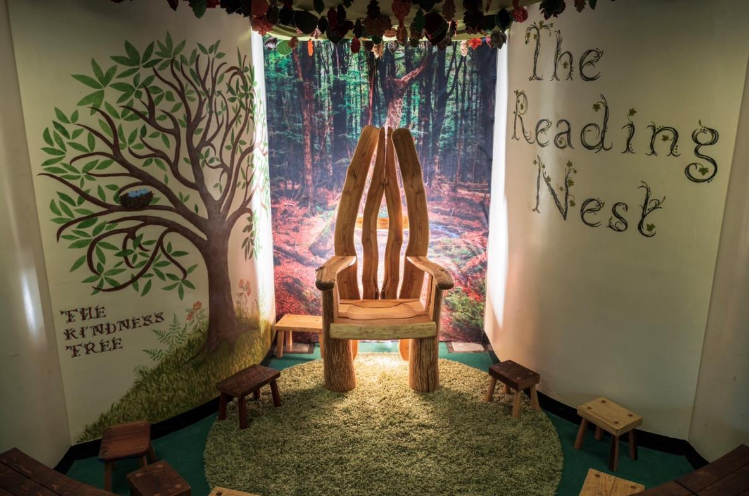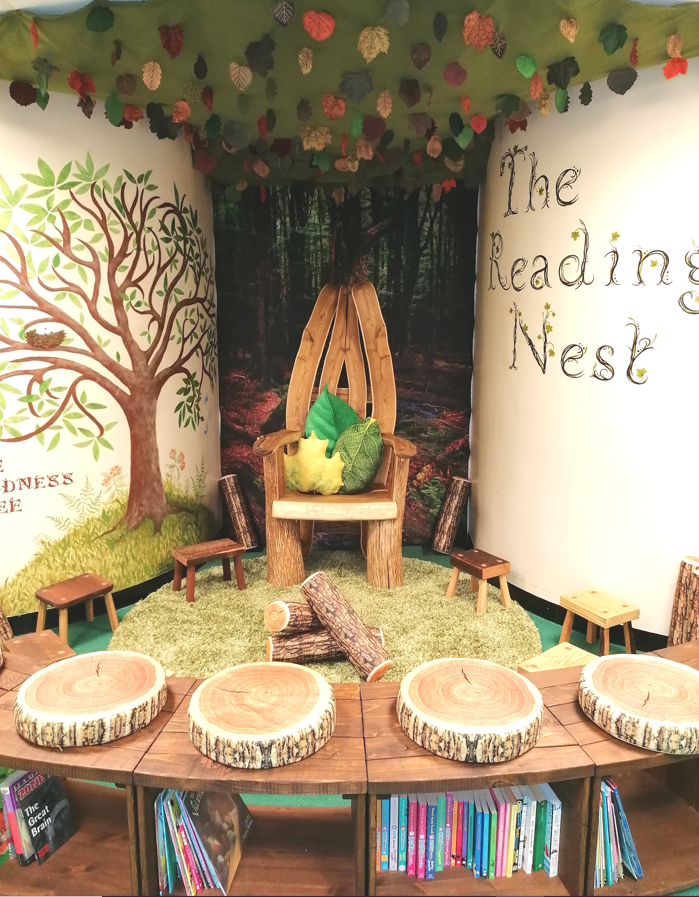This website uses Google Translate
You cannot use this feature without first accepting 3rd Party Cookies.
This website uses Google Translate
You cannot use this feature without first accepting 3rd Party Cookies.


You cannot use this feature without first accepting 3rd Party Cookies.
You cannot use this feature without first accepting 3rd Party Cookies.

What are Special Educational Needs and Disabilities? (SEND)
The Government define a child as having a SEND if they have a learning difficulty or disability which calls for special educational provision to be made or has a significant greater difficulty in learning than the majority of others the same age. The types of special educational needs and disabilities can include difficulties with:
Our staff are committed to supporting all children, regardless of what their special educational need or disability might be.
SEN Support
Where a pupil is identified as having a special educational need we follow a graduated approach which takes the form of cycles of “Assess, Plan, Do, Review”.
This means that we will:
As part of this approach, if it is deemed appropriate, a SEN Support Plan will be created for your child. This has 2 or 3 specific, measurable, achievable and realistic outcomes. These outcomes may be to help your child make progress in lessons. Outcomes may also help your child make progress with any life skills that are weaker than their academic skills (e.g. social skills)
A SEN Support Plan will outline what the appropriate support or intervention programmes (specific activities) will be and who will be the person carrying out the work. Interventions can be changed when required, to make sure your child succeeds.
The views of parents/carers and the child are integral when formulating a support plan. Any outcome agreed has to have a clear benefit for your child. It is important that parent/carers, the child and any adults working with the child, know what outcome a target may have for the child. Outcomes are looked at least every term with the child, their parents and class teacher/TA. This helps us see what is getting easier for the child and make sure we are all doing what we agreed.
A small percentage of children and young people with significant and/or complex needs may require an assessment that could lead to an Education, Health and Care Plan (EHCP) This is a very detailed assessment of a child’s needs. Parents or carers, the school and a range of professionals will all be asked to provide written reports to the Local Authority.
The Local Authority will read the reports, talk about the information and say whether an Education Health and Care Assessment is needed.
When the Local Authority says an Education Health and Care Assessment is needed the Local Authority looks at all reports given to them about the child. This helps them decide whether or not to issue an Education, Health and Care Plan for the child. The Local Authority has 20 weeks from first being asked do an Education Health and Care Assessment, to agreeing to a child having an Education Health Care Plan.
Parents/carers and other professionals also have the right to ask the Local Authority to carry out this assessment. It is usually best if you can do this with the support of the school.
Details of Identification and Assessment of Pupils with SEN
If your child has a special educational need our SENCO, Mrs Miller will:
All teachers are aware that children learn in different ways. Some children need to work at a slower pace to ensure they fully understand one thing before they move onto something new.
Teachers will:
We are committed to working with parents and carers to identify their child’s needs and support. Parents and carers will be involved throughout the process. We believe that the help of parents is particularly important in supporting the progress made by each child and we will consult with them when decisions need to be made.
There is a range of ways this can be done, for example:
How children with SEN engage in all activities?
At Wallsend Jubilee Primary, we aim to offer excellence and choice to all our children, whatever their ability or needs. We want all our children to feel that they are a valued part of our community and we have high expectations for them all. We aim to achieve this through the removal of barriers to learning and participation by:
We continuously ensure the provision has a positive impact on the outcomes for all of our children/young people. According to our school policy, children’s academic progress is monitored through summative assessments every term. The progress of children with SEND is monitored by both the class teacher and the SENCO using both summative assessments and the day to day informal assessments that are made during lessons. This information regarding progress is then used to evaluate the effectiveness of the support that is given. We will also gather information from the child, parents, carers as well as professionals from other agencies.
It is of the upmost importance to us that the provisions we provide are effective and therefore we regularly review their impact. Review meetings are held with the SENCo and class teacher every term, in addition to regular informal discussions with all staff. Other methods of our evaluation include:
With the permission of parents, we may seek additional advice from outside specialists. This extra advice may come from health professionals, specialist teachers or educational psychologists.
They would:
If your child needs lots of help from a range of professionals to succeed in school and in life, we will talk with you. We may with your permission, ask the Local Authority to carry out an Education, Health and Care Assessment.
We always encourage parents to come in and discuss any concerns with us face to face. Children who are working with a number of agencies will have termly reviews, even if they don’t have an EHCP, so that parents have a chance to discuss any concerns about the provision their child id receiving.
Support for Emotional & Social Development
At Wallsend Jubilee Primary, the whole school works as a team in order to ensure each and every child’s needs are met effectively. We have a number of systems in place to support children who may have pastoral, medical or social needs. The support given is individualised to the child and could come in a variety of forms.
Ways in which we can support these needs:
Our Pupil Premium Manager, Joanne Tappenden is also our Designated Teacher for Looked after children and her role is to ensure all teachers in school understand the implications for those children who are looked after and have SEN.
The designated LAC (looked after children) teacher will review the child’s progress through the PEP (personal, education plan) process with the relevant Local Authority and carers. If the child also has SEND Support Plan/EHCP this can be reviewed at the same time.
SEN Transition
How we support children/young people with SEN starting at our school/ moving throughout our school/moving on from our school.
As children prepare to transition to different key stages, settings and schools, we recognise the importance of ensuring this is as smooth and seamless as possible. Wallsend Jubilee organise transition visits for all children to help familiarise them with their new environment and potential new staff, this is regardless of whether they are transitioning between Nursery to Reception, Reception to year 1, Key stage 1 to key stage 2 or to a different setting. Transition may involve visits to a new settings with the child/Class teacher/SENCO/parents and may take place over several dates depending on the age and need of the child. In addition, we ensure that we share records and key information about the child’s needs, use of equipment, strategies for teaching, agencies involved to all 'new staff. During any transition, especially when changing school settings, for example starting nursery or moving onto high school it is important that families and school staff plan together. Your views and hopes and dreams for your child are important to us in planning for success and achievement. For further information please contact Cheryl Miller
How we support children/young people with SEN moving between classes in our school
We understand that any kind of transition can be challenging for children with SEND and we have several measures in place to ensure our children have a positive experience when moving between classes within school. At the end of each school year, the children all take part in a ‘Move-Up’ day, when they move into their new classroom and meet their new teacher. Children with SEND are supported by a teaching assistant they are familiar with during this process and if appropriate to the child’s needs, this assistant will move with them. Children may also have supplementary classroom visits and spend time getting to know their new teacher before the Summer break.
How we support children/young people with SEN leaving our school
At the end of Year 6, we work in partnership with our feeder secondary schools, to provide an enhanced level of transition for those who we feel would benefit from this. This may take the form of additional visits for children, one to one / small group working with secondary school staff or pupil mentoring from secondary schools.
We are particularly keen to involve parents/carers as much as possible in their child’s transition to secondary school. School staff will take opportunities to work alongside parents/carers to visit secondary schools in advance of secondary placement applications being submitted to the Local Authority. This ensures parents/carers can make the most informed placement decision for their child. When a secondary school has been allocated to the child, parents are fully involved and consulted at all stages of the transition process.